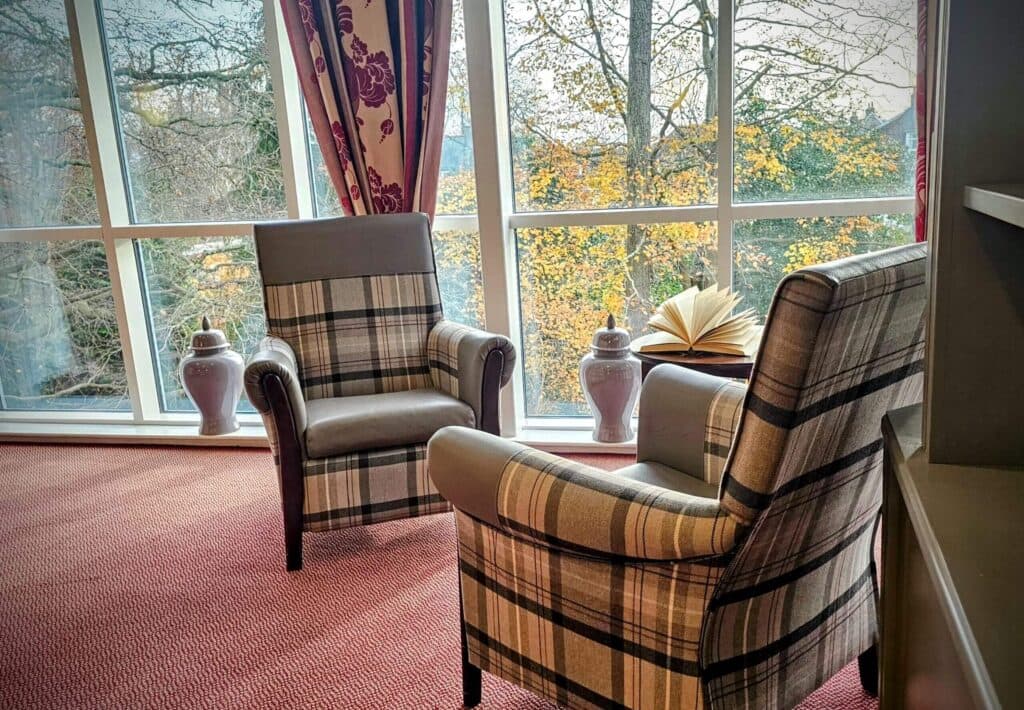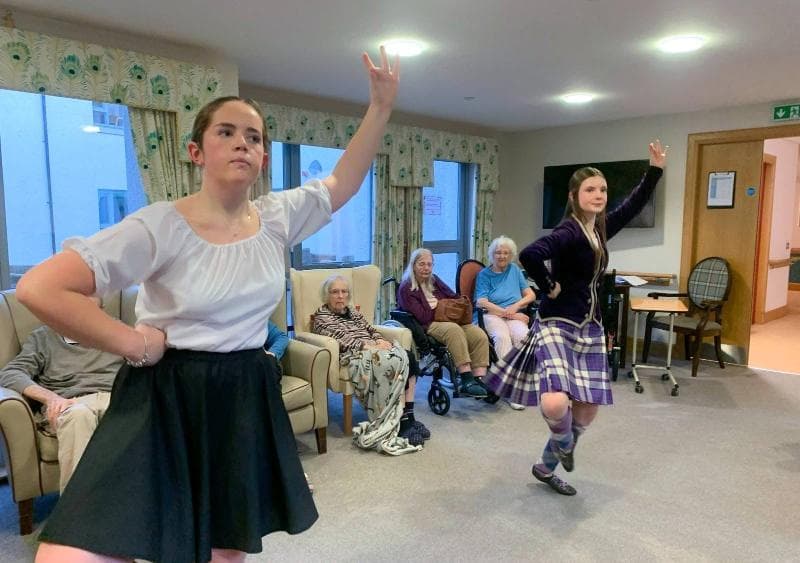Finding the Right Care Home for Someone You Love

Choosing a care home for a loved one is a big decision—one of the most important and complex choices a family can face. It’s a choice that goes far beyond the walls and facilities—it’s about finding a place where your loved one will feel safe, valued, and truly cared for every day. Visiting care homes in person provides an invaluable opportunity to get a real sense of the environment, the people who will be involved in their care, and how the home supports both physical needs and emotional well-being. Asking thoughtful, meaningful questions during your visit will help you look beyond the surface and discover a care setting that matches your family’s unique needs and values. This guide will take you through key questions, including a care needs assessment, designed to give you confidence and clarity as you explore what makes a care home genuinely feel like home.
1. Is the Atmosphere Homely and Inviting?
When you first walk through the doors of a care home, take a moment to tune in to both the physical surroundings and the atmosphere. Notice whether the welcome is warm, genuine and personal—are you greeted with a smile, and do staff seem approachable and attentive to both visitors and residents? The initial reception can set the tone for the home’s entire culture, especially in regard to nursing care.
Look around the shared areas and personal spaces: Is the environment clean, secure, and well-kept? A comfortable and accessible living space, with features like spacious hallways and personalised furnishings, is essential for residents’ comfort and mobility. Well-maintained gardens and bright, attractive interiors can signal a commitment to residents’ comfort and well-being. The choice of furniture plays a key role in creating a homely environment, contributing to both comfort and safety. Consider whether there are homely touches—such as family photos, artwork, or displays of residents’ achievements—that make the environment feel inviting rather than institutional.
Does the home feel uplifting and friendly, with spaces designed for both privacy and community? Are residents encouraged to personalise their rooms, and do they seem settled and at ease? Residents may also be able to bring their own furniture to make their space feel more like home. Your senses are just as important here as your questions—notice if there are any unpleasant odours, how natural light is used, and whether the layout feels accessible and safe for people with varying needs, including those with mobility challenges. The importance of access features such as ramps, lifts, and support rails cannot be overstated for residents who require additional mobility support.
Observe the small details: Are staff members interacting respectfully with residents, calling them by name and engaging in friendly conversation? Do residents appear relaxed, engaged, and comfortable, or do they seem withdrawn or unattended? Take note of how staff manage routines and whether the home’s energy is calm yet active—a balance that often reflects both good management and happy residents.
Your first impressions are a valuable clue to the home’s standards, values, and the overall quality of life it provides. Trust your instincts while also making mental notes to discuss with the care home manager later in your visit.
2. How is the Plan Care Personalised for Each Resident?
When you visit a care home, it’s crucial to find out how the team ensures every resident receives individual attention and support. Ask the care home manager or staff how they get to know new residents and what steps they take to understand each person’s unique needs, routines, and preferences. This isn’t just about physical health—finding out about favourite activities, hobbies, religious or cultural backgrounds, and daily habits, as well as considering dementia, can make a big difference in helping someone feel at home.
You might want to ask:
- How are individual care plans developed and reviewed? A care plan is a detailed document outlining the individual's care options and needs, and it is regularly updated to reflect any changes.
- Who is involved in setting personal goals or preferences for residents? Do families and residents themselves have direct input?
- How does the care home support residents as their needs change over time?
The type of care required will determine whether a residential care home, nursing home, or specialist care facility is most appropriate. Residential care homes provide personal assistance with daily living, while nursing homes have qualified nurses and qualified nurse staff on duty to offer medical support for residents with complex health needs. Specialist care options, such as dementia care, are available for those who need tailored support for specific conditions, ensuring residents receive expert, individualised attention.
Look for signs that the care home adapts easily to changes and that staff regularly check in with residents and their families. For example, some homes schedule regular meetings to update care needs and care plans, or maintain a feedback log so residents can express their wishes.
It’s also helpful to observe how staff interact with residents—are they attentive, proactive, and respectful of personal routines? Can residents personalise their rooms or choose what time to get up, eat, and join activities? Ask for practical examples of how the home has tailored care for different individuals; this is often the best way to understand their commitment to person-centred support. Care homes provide personal care, including assistance with daily activities such as bathing, eating, and using the toilet. The presence of qualified nurses and senior members of the care team, such as senior assistants or registered nurses, ensures that residents' health and well-being are closely monitored and supported.
3. How Are Residents Supported to Stay Social and Engaged?
Quality of life in a care home often depends on more than just comfort or care—it’s shaped by social connections, meaningful activities, and the freedom for residents to stay involved with family and friends. Being close to family or friends can make it easier to maintain social connections and receive support from loved ones.
Ask the manager or staff:
- What kinds of social activities, outings, or interest groups are available?
- How does the home tailor activities to residents’ interests and abilities?
- Are there dedicated coordinators or volunteers who plan and run events?
- Can family members and friends visit freely, and are there designated spaces for spending time together?
Look for lively communal areas that invite conversation and activity, as well as quiet spaces for relaxation. Notice whether you see evidence of recent events—like photos, crafts, or games—on display. Find out if residents help choose activities or share their feedback about what they’d like to see more of.
Beyond group activities, strong care homes make it easy for residents to keep in touch with loved ones. Ask about visiting hours, whether family are welcome to participate in special events, and if technology such as video calls is supported for residents who can’t always have visitors in person. Flexible visiting and a welcoming approach to families help residents maintain important relationships that are vital for emotional well-being.
Meaningful engagement is about understanding what gives a resident purpose and enjoyment, whether that’s gardening, a book club, faith services, or simply having the choice of how to spend each day. Homes that truly prioritise this will be eager to explain how they keep residents involved, active, and feeling part of a vibrant community. A vibrant social life within the care home can significantly enhance residents' overall well-being.



4. Consider all Your Options When Choosing a Care Home
Before you or your loved one settle on a care home, consider other options besides moving into a care home, such as home care or supported living. It is important to explore all alternatives before moving into a care home to ensure the best fit for your needs and preferences.
Understand the specifics that directly affect daily comfort and peace of mind. Take the time during your visit to clarify exactly what services, facilities, and amenities are available, as well as how day-to-day routines are managed to support each resident’s dignity and independence. Ensure you understand the financial assessment process. When considering funding, be aware of the difference between paying for your own care and receiving local authority funding. Check with your local council for eligibility for local authority funding, as this can significantly affect how you pay for care. It is crucial to be able to afford care costs, and financial assessments will determine who pays for care, whether you are self-funding or supported by the local authority.
Ask for details about meals and nutrition—are dietary preferences and medical needs easily accommodated? Take note if residents have input into the menu, and whether meals feel like a pleasant social experience rather than simply a routine. Touring the kitchen or dining area can give you a sense of food quality and presentation, which plays a big part in residents’ well-being.
It’s also wise to discuss exactly what is included in the fee so there are no surprises down the line. Are activities, outings, personal care, or additional services like hairdressing and physiotherapy covered? Understanding how fees are structured—and whether they change over time—will help you plan with confidence. The terms cost, costs, care costs, and care home fees refer to the overall expenses associated with care homes, which can vary depending on the type of care home—such as a residential home, residential care homes, nursing homes, or homes with nursing care places. These costs may differ based on the level of care required and the amenities provided.
Explore practical amenities as well, such as gardens, quiet spaces, and options for privacy. Ask about support for residents’ mobility and personal safety, and whether the home adapts for changing health needs or personal preferences as time goes on. The best care homes are flexible and responsive, aiming to make every resident’s life as enjoyable and comfortable as possible.
Local councils and local authorities play a key role in providing funding, assessments, and support for those considering care options. Contact your local council or social services for advice and support with funding and care options. It is also important to seek advice from healthcare professionals and financial advisors when choosing a care home to ensure all health and financial needs are met.
When choosing the right care home, make sure to visit local care homes in person and review their inspection reports. You can search online for care home ratings and reports on official websites, such as the Care Inspectorate website. The right care home should meet government standards, as verified by the Care Quality Commission and other regulatory bodies. Choosing a care home that meets government standards and is regularly inspected ensures quality and safety for your loved one.
Making Moving into a Care Home Easy
Selecting a care home is a decision that reaches far beyond practical arrangements; it’s about ensuring comfort, dignity, and a sense of belonging for someone you love. By focusing on the most important questions—those that get to the heart of everyday life, personal care, community, and support—you give yourself the best chance of finding a setting that truly feels like home. Remember to look beyond first impressions and take time to observe, ask follow-up questions, and involve your family in discussions about what matters most.
The right care home is one where your loved one’s individuality is respected, their days are filled with meaningful moments, and their physical and emotional needs are genuinely prioritised. As you explore your options, trust not just the answers you hear but also what you see and feel during your visit.
If you’re looking for a welcoming, expert-led care environment in Aberdeen, Rubislaw Park Care Home invites you to book a tour and discover first-hand how we put residents’ wellbeing and happiness at the heart of everything we do. Contact us today to arrange your visit and take the first step toward peace of mind for your family.





